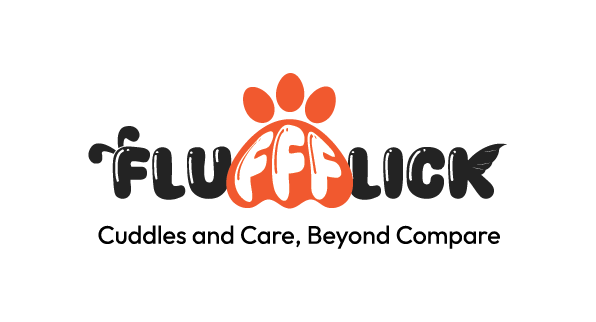Good hygiene is essential for the health and happiness of your pets. Regular grooming and care prevent potential health problems and keep your pets comfortable and looking their best. This guide covers effective ways to clean your dog’s ears, tips for keeping indoor cats clean and healthy, the best dental care products for pets, how to choose a safe and effective dog shampoo, and how to manage dandruff in cats and dogs.
1. Effective Ways to Clean Your Dog’s Ears
Regular ear cleaning is crucial to prevent ear infections, especially in breeds with floppy ears. Here’s how to do it safely:
a. Gather the Right Supplies
- Use a vet-approved ear cleaning solution, cotton balls or gauze pads, and treats for positive reinforcement.
b. Inspect the Ears First
- Check for any signs of infection such as redness, swelling, foul odour, or excessive wax buildup. If you notice any of these signs, consult your vet before cleaning.
c. Apply the Ear Cleaning Solution
- Gently lift your dog’s ear flap and squeeze a few drops of the solution into the ear canal. Avoid inserting the tip too deeply.
d. Massage the Base of the Ear
- Gently massage the base of the ear for about 20-30 seconds to help loosen any debris.
e. Wipe Away Excess
- Use a cotton ball or gauze pad to remove debris and excess solution. Do not use cotton swabs, which can push debris further into the ear.
f. Reward Your Dog
- Give your dog a treat and praise to make ear cleaning a positive experience.
2. Keeping Cats Clean and Healthy Indoors
Indoor cats are generally cleaner than outdoor cats, but they still need regular grooming and care to stay healthy.
a. Regular Brushing
- Brush your cat at least once a week to reduce shedding and prevent hairballs. Long-haired cats may require daily brushing.
b. Maintain Litter Box Hygiene
- Scoop the litter box daily and change the litter completely at least once a week to prevent odours and infections.
c. Provide Clean Water and a Balanced Diet
- Fresh water and a balanced diet are essential for maintaining a healthy coat and skin. Consider adding omega-3 fatty acids to their diet for skin health.
d. Keep Their Living Environment Clean
- Regularly clean and disinfect their bedding, toys, and scratching posts to prevent the spread of bacteria and allergens.
e. Regular Vet Checkups
- Schedule annual checkups to monitor your cat’s overall health and catch any issues early.
3. Best Dental Care Products for Pets
Oral hygiene is often overlooked but is crucial for preventing dental disease and maintaining overall health in pets. Here are some recommended products:
a. Pet Toothbrush and Toothpaste
- Use a pet-specific toothbrush and toothpaste. Never use human toothpaste, as it contains ingredients harmful to pets. Look for enzymatic toothpaste, which helps break down plaque.
b. Dental Chews and Treats
- Dental chews can help reduce plaque and tartar buildup. Look for products approved by the Veterinary Oral Health Council (VOHC).
c. Water Additives
- Water additives contain ingredients that help reduce plaque and freshen your pet’s breath. Simply add to their water bowl as directed.
d. Dental Wipes
- Dental wipes can be used as an alternative to brushing. They are less intimidating for some pets and can help reduce plaque.
e. Oral Sprays
- Oral sprays are easy to use and can help control bacteria and bad breath.
f. Dental Diets
- Some pet foods are formulated to promote dental health by reducing plaque and tartar buildup.
4. How to Choose a Safe and Effective Dog Shampoo
Choosing the right shampoo for your dog is essential for maintaining healthy skin and a shiny coat. Here’s what to look for:
a. Check the Ingredients
- Avoid shampoos with harsh chemicals, artificial fragrances, and dyes. Look for natural ingredients like oatmeal, aloe vera, and chamomile for gentle cleansing.
b. Consider Skin Type and Conditions
- For dogs with sensitive or dry skin, choose a hypoallergenic or moisturizing shampoo. For dogs with skin conditions like allergies or infections, a medicated shampoo recommended by your vet is best.
c. pH Balanced for Dogs
- Dogs have a different skin pH than humans, so choose a shampoo specifically formulated for dogs to avoid disrupting their skin’s natural balance.
d. Flea and Tick Protection
- If your dog has issues with fleas or ticks, consider a shampoo with added flea and tick protection.
e. Deodorizing Shampoos
- For dogs that get particularly smelly, a deodorizing shampoo can help neutralize odours without being too harsh on the skin.
5. How to Manage Dandruff in Cats and Dogs
Dandruff can be a sign of dry skin, allergies, or other underlying health issues. Here’s how to manage it:
a. Regular Brushing
- Brush your pet regularly to distribute natural oils and remove loose fur and dead skin cells. Use a brush suitable for their coat type.
b. Hydrate Your Pet’s Skin
- Add omega-3 fatty acids to your pet’s diet to improve skin health. You can also use a moisturizing spray or conditioner specifically designed for pets.
c. Frequent Bathing (But Not Too Frequent)
- Use a moisturizing or anti-dandruff shampoo, but avoid over-bathing as it can strip natural oils from the skin.
d. Humidify the Environment
- If you live in a dry climate or use heating in your home, consider using a humidifier to add moisture to the air, which can help prevent dry skin.
e. Consult Your Vet for Persistent Issues
- If dandruff persists despite proper grooming and care, consult your veterinarian. It could be a sign of an underlying issue such as allergies, parasites, or a skin condition that needs medical attention.
Conclusion
Maintaining good hygiene for your pets involves regular grooming, proper dental care, and using safe products tailored to their specific needs. By keeping up with these practices, you can ensure your furry friends stay healthy, happy, and looking their best. Regular vet checkups are also essential for catching any potential health issues early and providing the best care for your pets.

